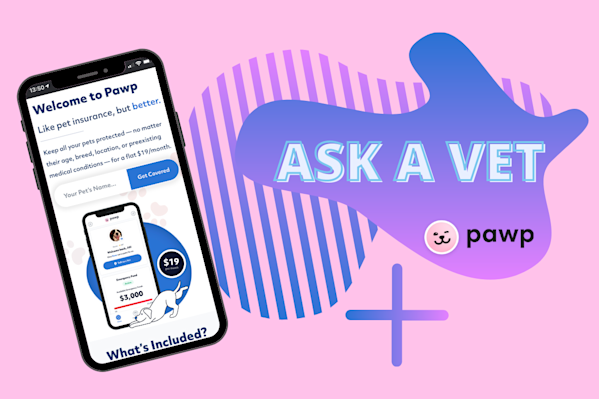Have you ever had a question about your pet but couldn’t find an answer that you trusted, or one that fit your exact situation? Why not talk to an online vet and get real answers you know you can rely on within seconds? Stop wasting hours online searching for information that might not even apply. Pawp’s online vets are available 24/7 to field any questions about your dog or cat.
Every week, Pawp online vets answers questions about cats and dogs from pet parents. Last week’s Ask A Vet, we discussed joint issues and caring for senior pets. This week, we take on adoption questions and potty-training.
Ask A Pawp Vet Anything
Is it better to adopt a puppy/kitten or an older dog/cat?
There is no one-size-fits-all rule when it comes to pet adoption. It’s all about which animal, breed, or age, makes the most sense for you. Adopting younger pets means you will have more control over shaping their early lives, habits, and personalities, but it also means teaching them how to function properly in the real world, and that definitely takes time. Adopting should be about the individual pet, not about general guidelines. Do you have the time to potty train and deal with teething? If the pet is older, do they have their own set of issues? Are they often scared or sometimes angry? Before adopting, take a chance to get to know the pet and how they will fit into your life.
What is the best way to potty train a puppy?
There are a few different methods for potty training your puppy and they each come with pros and cons. The correct method for you will depend on how much time you have and what your puppy responds to. Some people swear by puppy pads, which provide an “approved” place to pee in your home. Crate training is also popular as your dog doesn’t want to pee in their resting place and will cry to let outside to relieve themselves. This will teach puppies that there are good places to pee, and not good places to pee. You should create a consistent schedule for your puppy, reinforce them when they’re doing the right thing, and never rub their noses in a mess because they just won’t understand!
Read More: How To Potty Train Your Puppy While Busy
What kind of food should my new puppy eat?
Puppies grow an incredible amount in their first years of life and they require fat and protein-rich food from which they can derive all the nutrients they need. It’s important to get your puppy on puppy-specific food early so that they manage to eat enough calories to support their growing bodies. Puppy-specific diets also include vitamin and mineral supplements like DHA that are found in their mother’s breast milk. It may seem odd that a dog might eat more as a puppy than an adult — but they’re also running around and sleeping a lot more than their older counterparts do too.
Read More: How To Choose The Best Puppy Food
How do you get a kitten litter box trained?
Cats are naturally very tidy creatures, so it isn’t too difficult to get them to poop as far away from their day-to-day lives as possible. After you buy your litter supplies (a box, some litter, and a scoop), allow your kitten to explore and get a sense of it. Your kitten might like to bury her excretions, so it may be very natural. Place your kitten in the litter box after meals and after they wake up to encourage their use. If you see your cat in other parts of the house looking like they are about to relieve themselves, pick them up and move them to the litter box. If your cat does use the box, provide rewards. If your cat doesn’t do it right, don’t punish them (as they won’t understand).
Read More: 6 Litter Box Mistakes You Don't Want To Make
What kind of food should my new kitten eat?
Kitten food is richer in protein and fat than cat food as kittens are growing and require more to function. This goes hand in hand with kittens requiring a little more of everything in their first year — like sleep and exercise. Kittens are also more sensitive to proteins, so it’s important to choose a quality food option with fewer ingredients. Kitten food may also include more fiber and taurine and other nutrients growing kittens might normally derive from their mother’s milk. Wet food is generally preferred over dry as it also provides some extra hydration, and as cats are carnivores, fewer carbs are preferred too!
